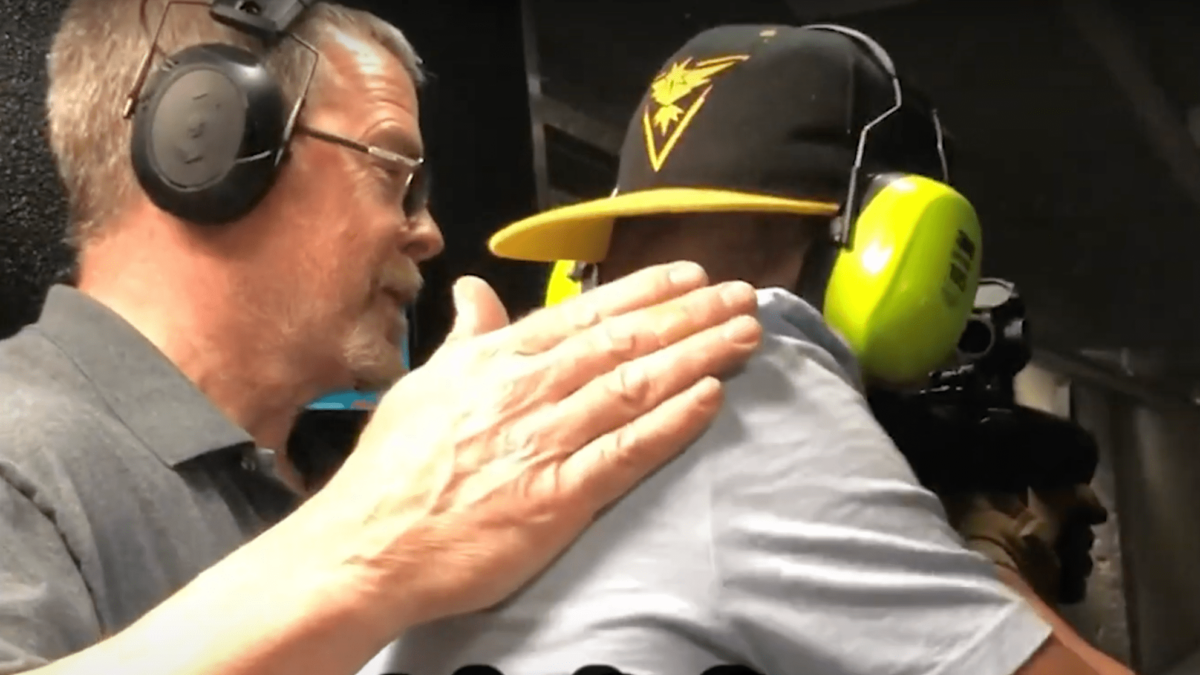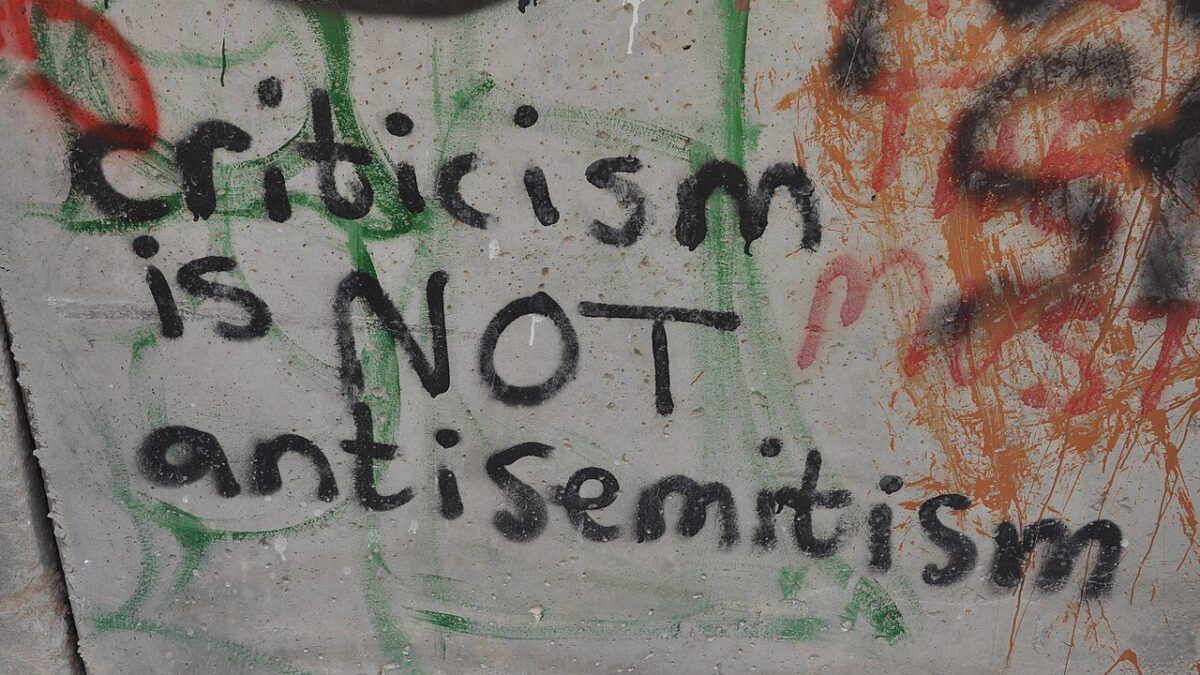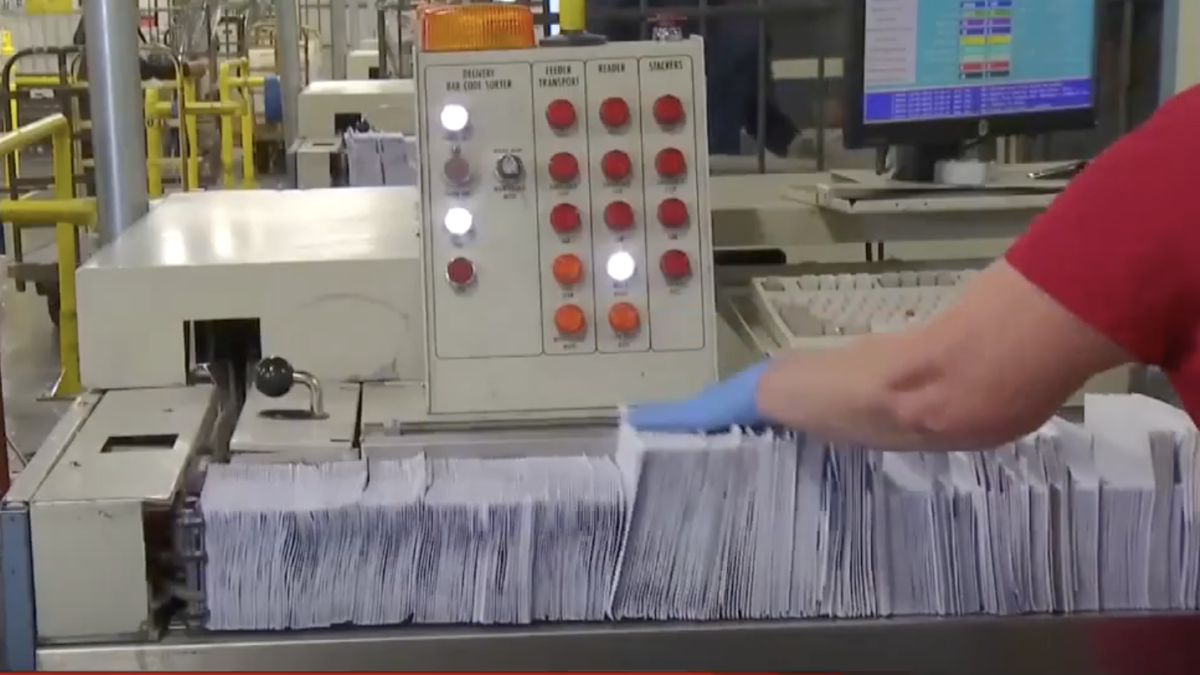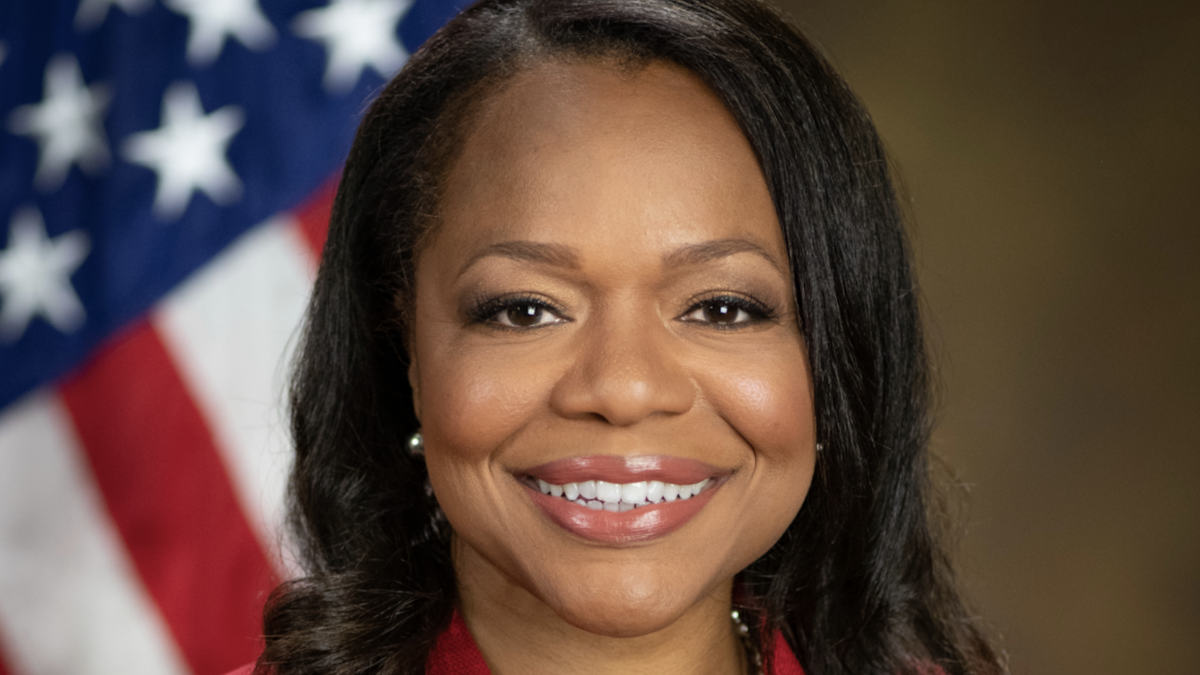The Flagstaff, Arizona City Council that barred a local shooting range owner from taking out ads in the city’s airport, as he’s done for years, is now plotting a policy proposal that could permanently ban the licensed federal firearms dealer from marketing his business to tourists.
“It’s especially frustrating for us because it’s not a Second Amendment issue, it’s strictly a First Amendment issue,” Timberline Firearms & Training Founder and Owner Rob Wilson told The Federalist.
The Navy veteran founded Timberline, a “full service, retail store, training facility and indoor and outdoor shooting range,” in 2018 with his wife Elise.
By 2019, Wilson decided to tap into Flagstaff’s booming tourist market by taking out space for a video advertisement that runs on a 60-second loop in the lagstaff Pulliam Airport’s baggage claim “during peak tourist season.”
“We have about 5 million tourists a year that visit Flagstaff to go to the Grand Canyon, and many of them come through the airport,” Wilson explained. “This was running on the only video monitor in the airport that has anything on it, and it’s right over the baggage claim belt. While you’re sitting there, waiting for your baggage, this was all you got to see.”
The 10-second ad features the Timberline Firearms & Training logo, a picture of young people holding unloaded rifles, and a short clip of a shooter firing a weapon at the FFL’s indoor under the close supervision of Wilson.
By the end of every summer, the clip has played for a multitude of air travelers thousands of times. Wilson told The Federalist Timberline experienced an influx of interest every summer from people who encountered the airport ad.
“We get a significant number of tourists because oftentimes, they are coming from places where they can’t do anything like what we can experience here,” Wilson said.
Because the marketing was so “effective at capturing that tourist market,” Wilson renewed his contract with the airport every summer.
When Wilson tried to purchase the advertising space in the baggage claim this year in April, the airport denied it, citing a Flagstaff city ban on any ads that “represent, by language or graphics, violence, or antisocial behavior.”
“It’s an advertisement that has run thousands of times in that airport before and never generated any kind of controversy or certainly no one was injured as a result of a video ad,” Wilson said.
Shooting From The Hip
It was unclear who ultimately decided Wilson’s ad, the same which he ran for the last four years, suddenly did “not align with our advertising guidelines.”
“The bottom line from what we can tell is that somebody at city hall or somebody at the airport just didn’t want guns being shown, didn’t want people talking about guns, advertising guns, or exercising their free speech rights on that subject,” Goldwater Institue Staff Attorney John Thorpe told The Federalist.
Wilson attempted to appeal the decision before a record-breaking number of tourists flooded the Flagstaff area this summer, but his requests were repeatedly brushed off.
“They said, ‘We’re gonna rewrite our entire policy, so you’re just gonna have to wait until we do that. And that won’t go in front of the city council until September, so you’re just out of luck for the summer,’” Wilson said.
Around that same time, the Flagstaff city council began crafting a new airport advertising policy that bars businesses like Wilson’s from using marketing that “promotes, solicits, or markets … weapons, firearms, ammunition, or fireworks, or depicts such products, goods, or services.”
The policy does not mention Timberline by name, but, as Wilson explained during a Sept. 12 City Council working session, it is Flagstaff’s “only indoor shooting range.”
“We train not just your friends and your neighbors but also our law enforcement agencies, both local, state, and federal,” Wilson noted during his prepared remarks.
Earlier in that same session, Flagstaff’s Economic Vitality Director Heidi Hansen claimed that the city’s advertising program should “generate revenue while offering opportunities to promote activities, to brand the business” but should provide a “welcoming and comfortable environment for our patrons.”
She said other cities, including Phoenix, had adopted similar advertising policies to the anti-gun one the council was considering. The Phoenix Sky Harbor Airport, however, confirmed to Arizona’s Family that it does not prohibit advertising for guns.
“Council members made it very clear — it was all of them — it made them uncomfortable was their explanation, justification for not wanting to run it,” Wilson said.
Thorpe said the city council’s plan is “unconstitutional under state and federal free speech doctrine” and “probably due process as well.”
“Fortunately for Arizonans, the Arizona Constitution is even more protective of speech than the federal constitution. We have a lot of case law saying that Arizona’s constitutional free speech provision goes further than the federal provision. It’s worded differently and makes clear that the drafters intended for it to protect even more speech,” Thorpe said.
While there is little case law specifically discussing “how free speech applies the context of city officials targeting an advertiser for [a] municipal airport,” Thorpe said the city’s treatment of Wilson is unconstitutional.
“One thing that courts have been clear on is that cities can’t engage in viewpoint discrimination. And they have to apply their policies reasonably. It fails on both points here,” Thorpe said.
Flagstaff residents appear to agree.
Biting The Bullet
While the council slow-walked Wilson over the advertising controversy, he received an outpouring of support from people in the community who were appalled at the city’s treatment of Timberline.
Several of them attested during city council meetings that Timberline is a “legitimate,” “licensed,” taxpaying business that provides the community with a “safe place to shoot.”
During a Sept. 19 city council meeting, one Arizonan went so far as to call for the resignation of the members who rallied around the decision to reject Wilson’s advertising application.
“Whichever one of you tried to help violate the constitutional rights of the Timberline Sports owners have directly violated your sworn oath by attempting to deprive those folks of their rights under the First and Second Amendment to both constitutions,” Steve Carter, who announced himself as an Army veteran who was inducted into the Maricopa County Sheriff’s office in 2010, told the council during a public participation segment.
Carter called on council members who “supported the action against Timberline” to apologize and “take a piece of paper, write out your resignation from the city council, and hand it to the city attorney.”
Wilson said that the city council also received more than “100 emails opposing it” and letters from “three members of the Arizona House of Representatives who said on official letterhead, you will be violating state law if you enact this policy.”
“They chose to move forward regardless,” Wilson added.
Goldwater Institute sent a letter to the Flagstaff city attorney threatening to take legal action if the city refuses to confirm whether its “new advertising policy will not prevent Mr. Wilson from
displaying the ads he previously ran for Timberline” and does not “promptly approve his
application to advertise at the Airport.”
“When you start out with the predetermined goal of making sure that your policy bans somebody’s speech. In order to do that and still maintain any kind of semblance of appearances, you end up banning a lot of other speech as well,” Thorpe said. “We don’t know what the final draft is going to contain but the language we’ve seen so far would ban a whole lot of other reasonable advertising.”
Thorpe said he’s in talks with the city but, so far, still expects the council to decide on an edited version of the policy in mid-November.
Even if the city moves forward with its new policy, Wilson confirmed that he won’t back down because he believes elected officials should be held accountable.
“It’s so important because our local elected officials will eventually become our state officials and then, eventually, our national officials. They’ve got to learn right now,” Wilson said.








